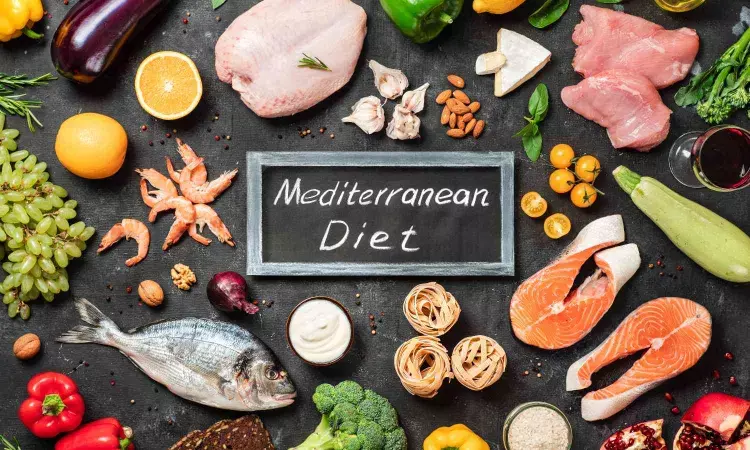- Home
- Medical news & Guidelines
- Anesthesiology
- Cardiology and CTVS
- Critical Care
- Dentistry
- Dermatology
- Diabetes and Endocrinology
- ENT
- Gastroenterology
- Medicine
- Nephrology
- Neurology
- Obstretics-Gynaecology
- Oncology
- Ophthalmology
- Orthopaedics
- Pediatrics-Neonatology
- Psychiatry
- Pulmonology
- Radiology
- Surgery
- Urology
- Laboratory Medicine
- Diet
- Nursing
- Paramedical
- Physiotherapy
- Health news
- Fact Check
- Bone Health Fact Check
- Brain Health Fact Check
- Cancer Related Fact Check
- Child Care Fact Check
- Dental and oral health fact check
- Diabetes and metabolic health fact check
- Diet and Nutrition Fact Check
- Eye and ENT Care Fact Check
- Fitness fact check
- Gut health fact check
- Heart health fact check
- Kidney health fact check
- Medical education fact check
- Men's health fact check
- Respiratory fact check
- Skin and hair care fact check
- Vaccine and Immunization fact check
- Women's health fact check
- AYUSH
- State News
- Andaman and Nicobar Islands
- Andhra Pradesh
- Arunachal Pradesh
- Assam
- Bihar
- Chandigarh
- Chattisgarh
- Dadra and Nagar Haveli
- Daman and Diu
- Delhi
- Goa
- Gujarat
- Haryana
- Himachal Pradesh
- Jammu & Kashmir
- Jharkhand
- Karnataka
- Kerala
- Ladakh
- Lakshadweep
- Madhya Pradesh
- Maharashtra
- Manipur
- Meghalaya
- Mizoram
- Nagaland
- Odisha
- Puducherry
- Punjab
- Rajasthan
- Sikkim
- Tamil Nadu
- Telangana
- Tripura
- Uttar Pradesh
- Uttrakhand
- West Bengal
- Medical Education
- Industry
Higher adherence to Mediterranean Diet may lower risk of obesity related Cancers: JAMA

Researchers have found in a large-Scale Study that Mediterranean diet had potential in cancer prevention especially those linked to obesity. Higher adherence to the Mediterranean diet was linked to a 6% reduced risk of obesity-related cancer over 15 years.Risks for colorectal, liver, and kidney cancers were significantly lower in individuals with medium or high adherence. Further the risk reduction was even more pronounced among current and former smokers.
In this cohort study the researchers used data from the European Prospective Investigation Into Cancer and Nutrition (EPIC), which enrolled adults aged 35-70 between 1992 and 2000 across 23 centers in 10 countries. Data analysis took place from March to May 2023.
Dietary intake before enrollment was assessed through country-specific, validated questionnaires. Adherence to the Mediterranean Diet (MedDiet) was scored on a 9-point scale, categorized as low (0-3 points), medium (4-6 points), or high (7-9 points).
This study examined the link between Mediterranean Diet (MedDiet) adherence and obesity-related cancers (ORCs) using data from 450,111 participants (mean age 51.1 years, 70.8% women) over a median follow-up of 14.9 years. ORCs were classified based on 2015 International Agency for Research on Cancer criteria.
Higher MedDiet adherence was associated with a lower ORC risk. Incidence rates per person-year were 0.053 (low adherence), 0.049 (medium), and 0.043 (high). Participants with high adherence (7-9 points) had a reduced ORC risk compared to those with low adherence (0-3 points) (HR: 0.94, 95% CI: 0.90-0.98). A similar trend was seen in the medium adherence group. However, waist-to-hip ratio and body mass index did not mediate this association.
This cohort study suggests that higher adherence to the Mediterranean Diet (MedDiet) may slightly lower the risk of obesity-related cancers (ORCs). Even moderate adherence was linked to a small risk reduction. While the findings did not indicate that overweight or obesity mediated this relationship, further research is needed to explore the underlying mechanisms.
This study's strengths include a large sample size, numerous cancer cases, and long follow-up. Unlike previous EPIC analyses, it examined various cancer subtypes and obesity-cancer links across populations with different levels of Mediterranean Diet (MedDiet) adherence. Sensitivity analyses and adjustments for confounders, such as smoking, strengthened the findings.
However, limitations exist. Dietary intake and confounders were only assessed at baseline, though prior research suggests dietary patterns remain stable. The MedDiet score may not fully capture the Mediterranean lifestyle, particularly for non-Mediterranean participants. Additionally, the scoring system equally weights all diet components, which may oversimplify its effects. Self-reported anthropometric data in some countries could introduce bias, though prior studies suggest this impact is minor. Lastly, the cohort’s low obesity prevalence may have contributed to the null mediation results. Future studies should incorporate objective measurements and validate self-reported data.
For further reference log on to:
https://jamanetwork.com/journals/jamanetworkopen/fullarticle/2830586
Dr Kamal Kant Kohli-MBBS, DTCD- a chest specialist with more than 30 years of practice and a flair for writing clinical articles, Dr Kamal Kant Kohli joined Medical Dialogues as a Chief Editor of Medical News. Besides writing articles, as an editor, he proofreads and verifies all the medical content published on Medical Dialogues including those coming from journals, studies,medical conferences,guidelines etc. Email: drkohli@medicaldialogues.in. Contact no. 011-43720751


